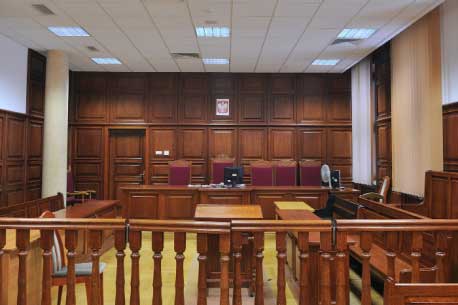A suspect is considered to be a person who has been charged with a statement of charges or who has been charged without issuing such a decision in relation to proceeding with the interview as a suspect.
The suspect has the right to use the free assistance of an interpreter if he does not speak Polish sufficiently. Such a suspect order to present, supplement or change the charges, indictment and the decision subject to appeal or ending the proceedings shall be served with a translation; with the consent of the suspect, you can stop at announcing the translated decision terminating the proceedings if it is not subject to appeal.
A suspect in detention on remand may communicate with his lawyer in the absence of other persons and by correspondence. In the preparatory proceedings, the prosecutor granting permission to communicate may, in particularly justified cases, stipulate that he or he or a person authorized by him will be present. The prosecutor may also reserve the control of correspondence between the suspect and his lawyer. These objections may not be maintained or made after the expiry of 14 days from the date of the arrest of the suspected person.
The suspect is not required to prove his innocence or to provide evidence to his disadvantage. The suspect is, however, obliged to submit to:
- external examination of the body and other tests not combined with violation of body integrity; in particular, you may, in particular, take fingerprints from the suspect, take photos of them and show them to others for identification purposes
- psychological and psychiatric examinations as well as examinations connected with carrying out procedures on his body, except for surgical ones, provided that they are performed by an authorized health care professional in accordance with medical knowledge and do not threaten the health of the suspect, if such examinations are necessary; in particular, the suspect is obliged, under these conditions, to undergo blood, hair or body secretions,
- a police officer taking a swab from the mucous membrane of the cheeks, if it is indispensable and there is no fear that this would endanger the health of the suspect or other persons.
A suspect who remains at large is obliged to appear at every summons in the course of criminal proceedings and to notify the authority conducting the proceedings of any change in his place of residence or stay lasting longer than 7 days, which must be notified at the first interrogation. In the event of an unjustified failure to appear, the suspect may be stopped and brought back forcibly.
If the suspect is a minor or incapacitated person, his legal representative or the person under whose custody the suspect remains, may take in his favor all legal proceedings, and above all, bring an appeal, submit applications and appoint a defender.
A suspect may have no more than three defenders at the same time. A suspected person who does not have a lawyer of his choice may demand that he be appointed an office lawyer if he duly demonstrates that he is unable to bear the costs of defense without compromising the necessary support for himself and his family. The court may withdraw the appointment of a lawyer if it turns out that there are no circumstances on the basis of which he was appointed.
In criminal proceedings, the suspect must have a lawyer if:
- is a minor,
- is deaf, dumb or blind,
- there is a reasonable doubt as to his sanity (if in the course of the proceedings expert psychiatrists find that the sanity of the suspect both at the time of the commission of the act accused of him and during the proceedings does not raise doubts, the participation of the defender in further proceedings is not mandatory. President of the court, and at the hearing the court may then withdraw the appointment of a lawyer).
The suspect must also have a defense counsel when the court deems it necessary due to circumstances impeding the defense.
In cases where the suspect must have a defender, the participation of the defender is mandatory in the trial and in those meetings where the participation of the suspect is mandatory.
[Legal status as at April 2020]



